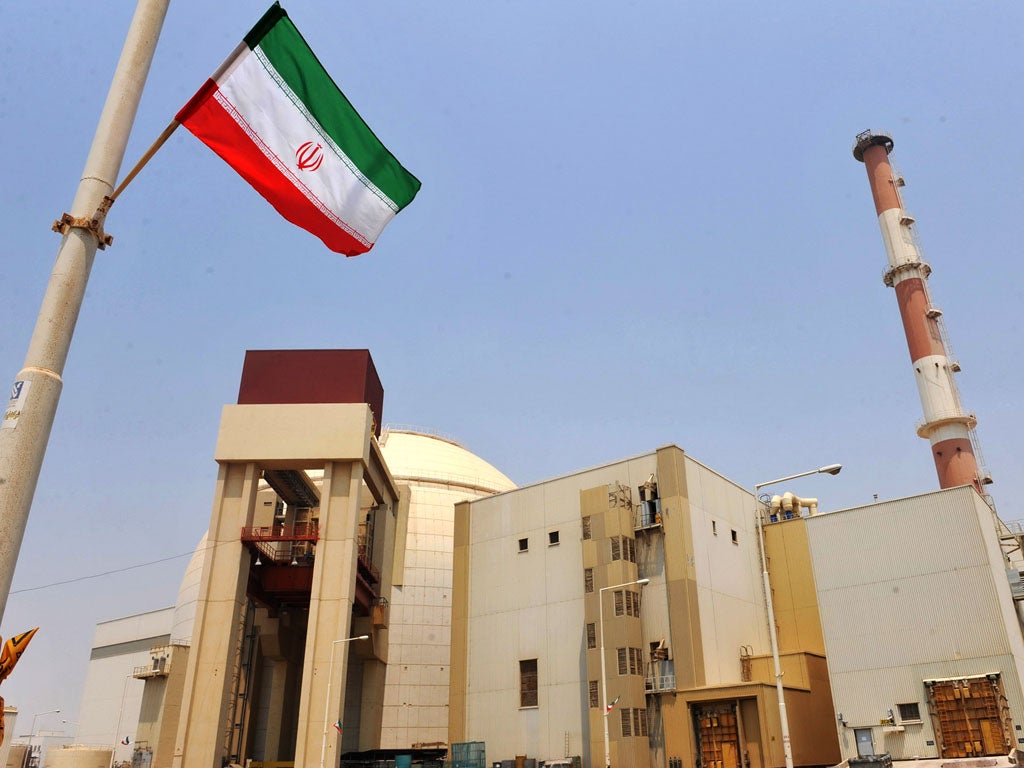Deal struck on wider UN inspections of Iran sites in boost to wider negotiations over Tehran's nuclear programme
Optimism about potential breakthrough in decade-long dispute raised

Iran and the UN's nuclear chief reached a deal today to allow expanded monitoring of the country's nuclear sites, including at a planned reactor. The agreement could boost wider negotiations over Tehran's atomic program.
Although the deal is a step forward in Iran's cooperation with the UN nuclear watchdog agency, the initial “roadmap” for deeper inspections does not mention some of the sites most sought by UN teams, notably a military facility outside Tehran, to probe suspicions of nuclear-related work.
Iran was quick to promote the accord, announced at a joint news conference, as a sign of progress toward reaching a broader accord with the US and other world powers when talks resume next week. But the greater inspection access is set to unfold over a three-month timetable, which could encourage Western envoys yet may not be enough to bridge the range of differences that emerged during negotiations that stalled over the weekend.
The deal was struck during talks in Tehran with UN nuclear watchdog Yukiya Amano, whose initiative parallels more far-reaching efforts by the six world powers to reach an accord that would ease Western concerns that Iran could one day develop nuclear weapons — an assertion Iran denies.
In Abu Dhabi, US Secretary of State John Kerry dismissed claims of serious rifts within the six-nation bloc, saying their positions were united and Iran was not able to accept latest offers made during talks in Geneva “at that particular moment” — suggesting there was room for more progress at the next rounds beginning Nov. 20.
The pact reached today certainly contributes to the chances of a larger deal. Inspectors from the International Atomic Energy Agency, or IAEA, have been working in Iran for years, but have complained of some limitations in reaching some sites and personnel.
The framework would give IAEA teams access to a key uranium mine and the site of a planned heavy water reactor, which uses a different type of coolant than regular water and produces a greater amount of plutonium byproduct than conventional reactors. Inspectors have already visited the reactor site, but seek more extensive probing.
The IAEA also received clearance for a visit to the Gachin uranium mine near the Persian Gulf port of Bandar Abbas, which also has been sought.
The deal also calls for Iran to provide more details on its nuclear program including all planned research reactors. This is important because such facilities use 20 percent enriched uranium, which is the highest level acknowledged by Iran and a key aspect of the ongoing nuclear talks. Halting the 20 percent enrichment — which is several steps away from weapons-grade — is a key goal of Western envoys, for which they may offer Iran a possible easing of US-led sanctions.
But access to the planned heavy water site is perhaps the central concession of the package with the IAEA. During the weekend talks in Geneva between Iran and six world powers, France insisted that more controls were needed on the reactor under construction in the central city of Arak.
Plutonium can be used in nuclear weapons production, but separating it from the reactor byproducts requires a special technology that Iran does not currently possess.
Iran's nuclear chief, Ali Akbar Salehi, said the pact is intended as “a roadmap that clarifies the mutual steps required for resolving the outstanding issues” — points repeatedly raised by President Hassan Rouhani since taking office in August.
A joint statement by Salehi and Amano said both sides seek to “cooperate further ... to resolve all present and past issues.” The IAEA, in a nod to Iran's concerns, also agreed to protect confidential information regarding its nuclear program.
Monday's deal also could open room for even wider inspections, but no details were given.
“The practical measures will be implemented in the next three months, starting from today,” Amano said in a news conference in Tehran.
Noticeable absent from the announcement was mention of the Parchin military facility southeast of Tehran.
The IAEA has sought to revisit the site to investigate suspicions that explosive tests were carried out related to possible nuclear triggers. Iran denies the allegations, but has resisted opening the base.
Join our commenting forum
Join thought-provoking conversations, follow other Independent readers and see their replies
Comments
Bookmark popover
Removed from bookmarks